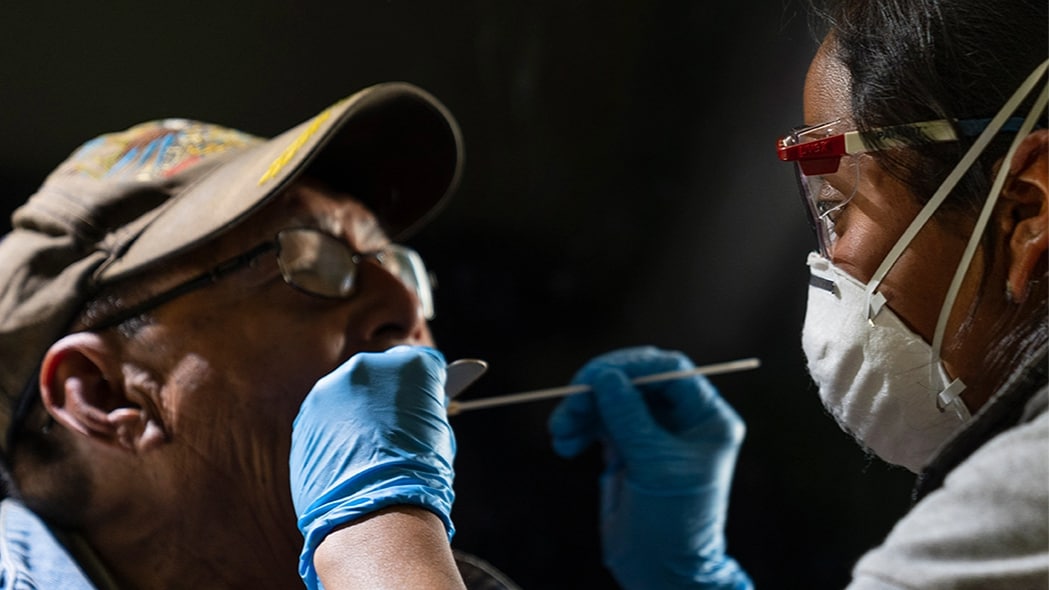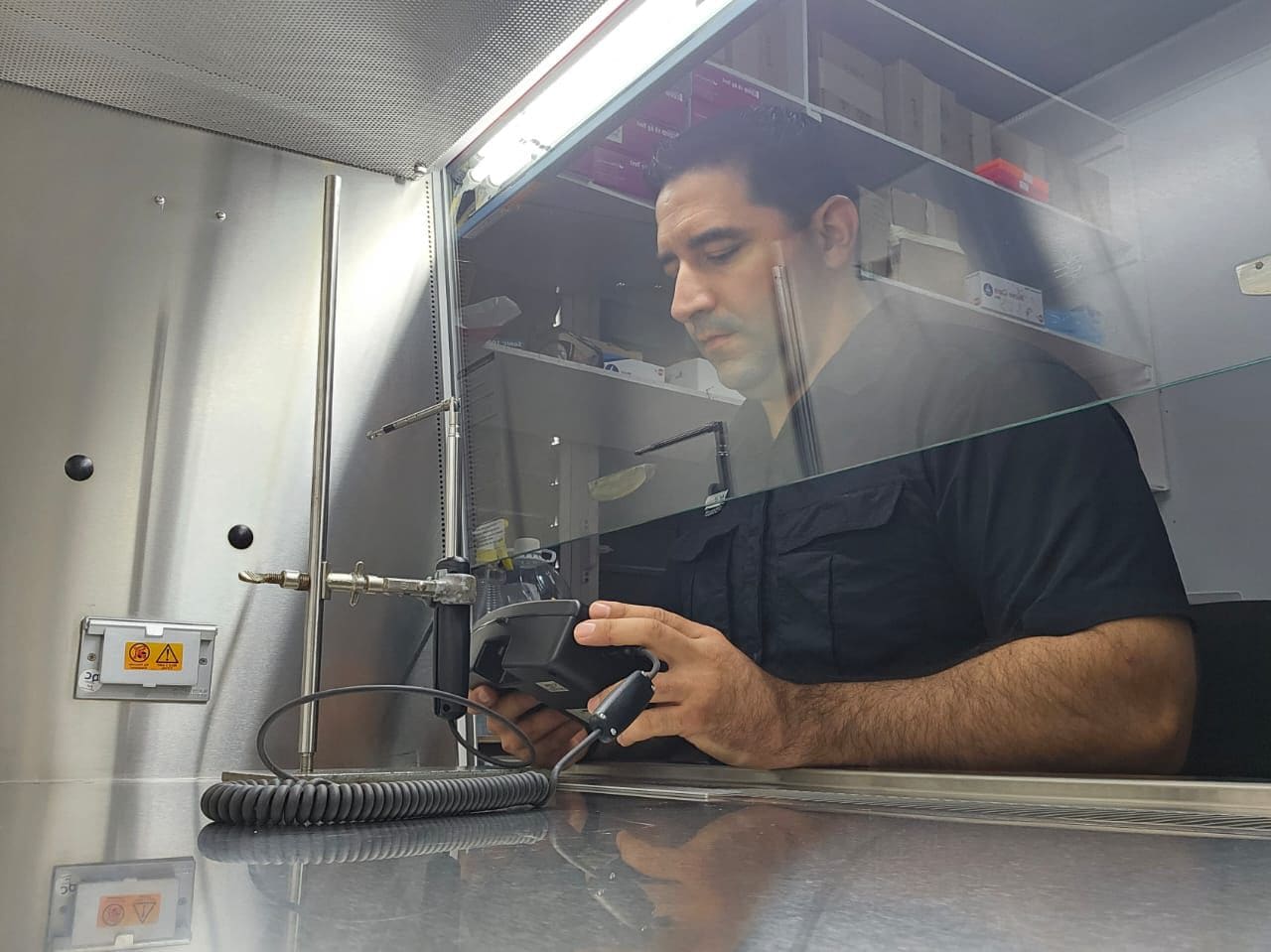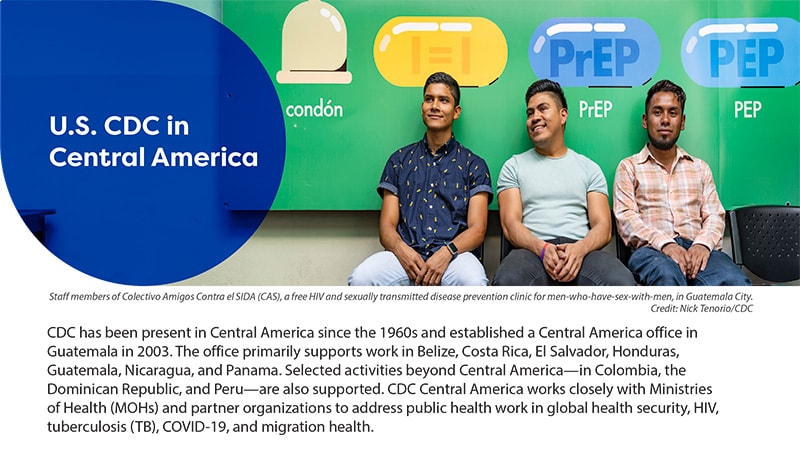At a glance
CDC Central America, established in 2003, partners with the governments of Belize, Costa Rica, El Salvador, Honduras, Guatemala, Nicaragua, Panama, and additional countries to address public health work in global health security, HIV, tuberculosis (TB), COVID-19, and migration health.
Overview

CDC has been present in Central America since the 1960s and established a Central America office in Guatemala in 2003. The office primarily supports work in Belize, Costa Rica, El Salvador, Honduras, Guatemala, Nicaragua, and Panama. Selected activities beyond Central America—in Colombia, the Dominican Republic, and Peru—are also supported.
CDC Central America works closely with Ministries of Health (MOHs) and partner organizations to address the following public health areas:
- Global health security
- HIV
- TB
- Laboratory strengthening
- Migration and border health
- COVID-19 and other respiratory diseases
Global health security
Strategic focus
CDC supports disease surveillance, outbreak response, laboratory systems, and workforce development in coordination with local, regional, and global public health organizations.
Surveillance strengthening
Since 2018, CDC Central America has worked with partners to strengthen surveillance for key infectious disease pathogens and antimicrobial resistance in Belize, the Dominican Republic, El Salvador and Guatemala. CDC’s acute febrile illness surveillance network in Central America and the Dominican Republic identifies emerging and re-emerging disease threats, strengthens regional collaborations, and increases capacity to use data for decision-making.
CDC collaborates with ministries of health, agriculture, environment, and defense across Central America to conduct One Health Zoonotic Disease Prioritization workshops. These sessions increase opportunities for cross-disciplinary surveillance, prevention, and control of zoonotic diseases.
Laboratory strengthening
For the past 20 years, CDC Central America has supported laboratory-based disease surveillance and detection of novel strains and pathogens. The agency also supports the Regional Network of National Laboratories (REDLAB) strategic plan. Activities include:
- Training laboratory staff.
- Strengthening genomic surveillance in Guatemala, Costa Rica and Panama.
- Increasing diagnosis of fungal diseases in Belize and El Salvador.
- Enhancing surveillance of norovirus and rotavirus in Costa Rica.
- Strengthening laboratory biosafety across the region.
CDC works closely with the REDLAB network, which facilitates collaboration and strategic planning for national laboratory leadership from throughout Central America.
Workforce development
The Field Epidemiology Training Program (FETP) strengthens the public health workforce capacity to investigate and respond to disease outbreaks.
CDC Central America supports three tiers of FETP (frontline, intermediate, and advanced) to train epidemiologists in identifying and containing outbreaks before they become epidemics. Advanced FETP participants earn a master's degree in epidemiology through Universidad del Valle-Guatemala.
During the COVID-19 response, FETP graduates together with CDC’s implementing partners led efforts to increase vaccination rates and provide epidemiological support to MOHs.
Emergency response
Since 2017, CDC has participated in outbreak investigations for multiple health emergencies such as measles, rabies, fungal infections, dengue, foodborne diseases, and COVID-19.
Established relationships between CDC and MOHs helped to quickly expand regional laboratory capacities and surveillance during the region’s COVID-19 response. CDC activities included:
- Expanding existing surveillance platforms to include COVID-19 testing.
- Donating critically needed laboratory equipment and supplies.
- Increasing genomic sequencing capacity throughout the region.
- Using serological surveys to understand the spread of SARS-CoV-2 infection.
- Supporting COVID-19 vaccination activities, especially for underserved populations.
- Boosting rapid response teams’ skills.
Key accomplishments
- 4,929 residents have graduated from FETPs in Central America.
- Since 2019, CDC has trained more than 4,000 laboratory personnel.
HIV and TB
Strategic focus
Since 2003, CDC has collaborated with MOHs, community-based organizations, and international partners to respond to the HIV epidemic in Central America. This includes scaling up evidence-based programs that close gaps in HIV prevention, case finding, optimized treatment, and viral load suppression.
CDC Central America supports countries to achieve UNAIDS 95-95-95 goals by 2030 by:
- Expanding HIV combination prevention strategies.
- Increasing HIV testing access and knowledge of HIV status.
- Improving health outcomes among people living with HIV.
- Preventing and treating opportunistic infections such as TB.
- Strengthening HIV treatment retention and viral load suppression.
- Increasing laboratory capacity to test for HIV and monitor viral loads.
- Increasing workforce capacity among healthcare workers.
- Addressing stigma and discrimination against people living with HIV.
Key accomplishments
- In FY23, CDC partnered with local partners to provide:
- HIV prevention services to over 56,000 people.
- HIV testing for over 123,000 people.
- HIV treatment for over 31,000 people.
- HIV prevention services to over 56,000 people.
Migration and border health
Strategic focus
Global migration impacts the health of migrants and the potential spread of diseases, including across borders. CDC works with partners to improve HIV services for Venezuelan migrants, enhance border health systems, and understand health-related reasons for migration.
CDC has conducted trainings on surveillance, public health policy, preventing cross-border spread of diseases, and responding to health emergencies at points of entry. CDC has also enhanced HIV prevention, care, and treatment services for migrants throughout Central America.
Other CDC activities have included:
- Identifying challenges in detecting and responding to health threats among populations moving within and out of Central America.
- Supporting COVID-19 testing and vaccination for migrants returning to Central America from the U.S. and Mexico.
- Developing or revising public health emergency plans and standard operating procedures to detect and respond to ill travelers at points of entry in El Salvador and Honduras.
- Supporting strengthened information-sharing and collaboration between Costa Rica and Panama to facilitate coordinated responses to health threats that may spread across an international border.
Success story spotlight
Strengthening Biosafety in Central America

Biosafety is one of the most critical elements of effective laboratory work and timely diagnosis of diseases. Using properly certified and maintained equipment, particularly Biosafety Cabinets (BSCs), is vital to ensuring a secure laboratory system that produces accurate results and protects staff and the environment from infectious microorganisms.
In low- and middle-income countries, it can be very challenging to obtain and maintain certified equipment like BSCs when local laboratory leaders have limited resources. BSCs are often used without proper calibration and certification due to the high costs of certifiers and lack of their availability. Even just the travel cost for certifiers from another country to visit and certify a single BSC is higher than the actual certification cost.
Recognizing the need for a sustainable solution in Central America, CDC staff based in Guatemala, the Council of Ministries of Health of Central America and the Dominican Republic (COMISCA), and the Costa Rican Institute for Research and Teaching in Nutrition and Health (INCIENSA) came together to figure out how they could strengthen local expertise in BSC certification.
The team sought a local engineer who could easily travel across the region at a lower cost. They found an electromechanical engineer named José Quesada who was already in charge of maintaining INCIENSA's equipment and facilities. José served as a local subject matter expert to lead the region's BSC certification goals into a reality. Through rigorous training, he became an accredited BSC certifier, and now serves as a local champion on a mission to enhance biosafety in Central America.
Honduras and Belize national laboratories are now BSC certified. This initiative exemplifies collaboration, innovation, and local capacity strengthening that will have long-term, sustainable impacts on laboratory systems and worker safety across Central America.

